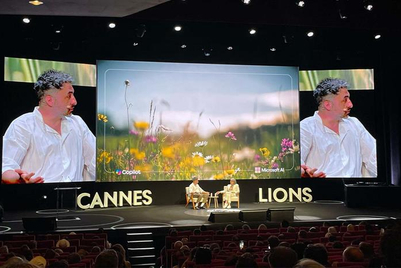
Kotex, the century-old sanitary products brand from Kimberly-Clark, is refining its business and brand purpose in Asia-Pacific by taking a nuanced approach to product launches and busting myths around menstruation.
In an interview with Campaign, Aparna Gopalakrishnan Dubey, regional sector leader, APAC feminine care at Kimberly-Clark, says period stigma exists across APAC but "manifests itself differently" by market.

For example, in Australia, which is one of Kotex's more developed markets, it recently conducted research which found that one in two girls don't have access to all the right information on menstruation.
Meanwhile in India and developing markets in the region, the stigma is more deeply entrenched in culture. “Across our markets, we actually conduct menstrual education programmes not just for girls, but also boys. Because conversation and education around it is the first way to challenge the stigma,” she adds.
A key focus market for Kotex in APAC is Indonesia, where it acquired Softex in September 2020 for $1.3 billion. Here, Dubey says the brand has partnered with Unicef and Softex to provide menstrual health and hygiene educational programs, and water sanitation and hygeine (WASH) facilities. “Our primary focus is to ensure that we talk of positive conversation and education as the two ways to address it across markets,” she stresses. “It is a large market for us (and) we do have strong growth aspirations in the market.”
To address stigma around menstrual periods, Kotex has taken a varied approach in APAC. For instance, in markets such as China, Hong Kong and Taiwan, the focus is a lot more on a 'positive way to address the stigma versus the stigma itself'," Dubey says. In other markets, the brand focuses on specific cultural nuances or practices. Meanwhile, in more developed markets like Australia, it targets education and access to product.

Kotex’s most recent campaign 'Unfiltered', launched on Menstrual Hygiene Day (May 28), was a social video offering with the aim of instilling confidence and encouraging girls to talk about menstruation early. In the Singapore campaign, a diverse range of young girls between the ages of 11-14 share questions they have about periods.
“Among Gen Z consumers, there is a lot more openness and willingness to talk about periods without the baggage of stigma,” says Dubey. “The 'Unfiltered' video and the process of developing it even for me was an eye opener to how the new generation of girls are actually willing to have an open, honest conversation.”
For Kotex, campaigns such as 'Unfiltered' go hand-in-hand with the social impact work it does in the region, which largely includes education around menstruation, and providing access to menstrual products and sanitation. “It shines a light on conversations and period stigmas that can be taken care of by just having positive conversations around it and so it is all part of a campaign to really bring our brand purpose to life," she says.
The focus on purpose comes as Dubey leads a category in flux. While conventional brands have stayed strong, consumers have become more aware of sustainable choices and alternatives to conventional sanitary products. “Certainly, I think there is a lot more awareness and expectation from brands as well,” Dubey says. “Girls make their choice of brands based on whether the values that the brand stands for is in sync with them.”
In answer to this, Kotex is developing sustainable products, starting with reusable underwear in Australia. Several of its products in Korea are 100% organic cotton. “We're in the pipeline to strengthen this part of the product portfolio because it is an expectation from consumers,” Dubey remarks.
Elsewhere, the Covid-19 pandemic may have made access to Kotex’s products harder in APAC, especially in emerging markets, but it has also helped the brand’s marketing become primarily digital-first, Dubey shares.
“What we're realising is that we target teens…and this consumer is very native to digital so for us, having been restricted to home has not actually affected media consumption significantly,” Dubey discloses. “For most of our campaigns, we are a digital-first brand. And if anything it has actually opened opportunities for us to communicate stronger through digital touchpoints.”


.jpg&h=334&w=500&q=100&v=20250320&c=1)


.png&h=334&w=500&q=100&v=20250320&c=1)




.png&h=334&w=500&q=100&v=20250320&c=1)


.jpg&h=268&w=401&q=100&v=20250320&c=1)


.png&h=268&w=401&q=100&v=20250320&c=1)
.png&h=268&w=401&q=100&v=20250320&c=1)

